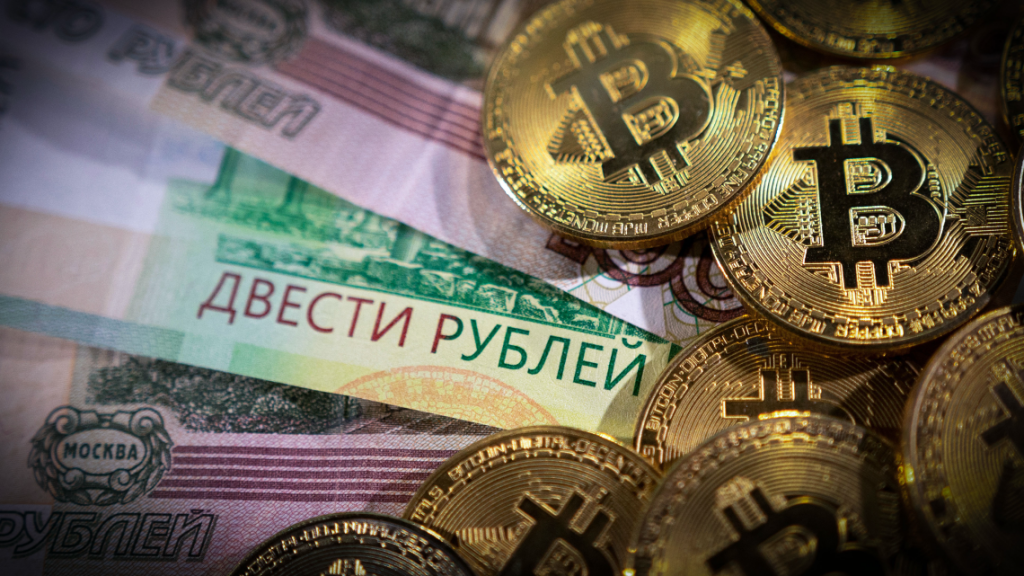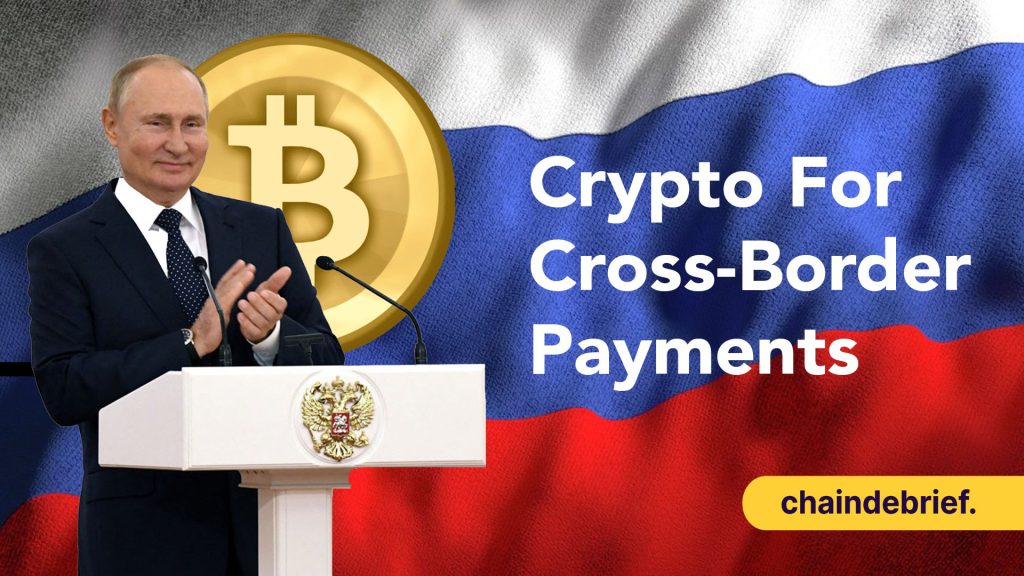The Bank of Russia, the country’s central bank, has acknowledged that cross-border payments in cryptocurrency are inevitable in the current geopolitical environment.
According to TASS, a local news outlet, the Russian central bank has changed its mind about how to regulate cryptocurrency and is now working with the Russian Ministry of Finance to legitimise its use for international payments.
Use of crypto in Russia
According to Deputy Finance Minister Alexei Moiseev, the Bank of Russia and the Finance Ministry expect to legalise cross-border crypto payments soon. Moiseev outlined the significance of enabling local crypto services in Russia, noting that many Russians rely on foreign platforms to create a crypto wallet.
“It is necessary to do this in Russia, involving entities supervised by the central bank, which are obliged to comply with Anti-Money Laundering and Know Your Customer requirements,” the official stated.
The Bank of Russia subsequently clarified that it is still opposed to legalising crypto payments within the country despite giving the green light to cross-border payments. “It is important to emphasise that we are not talking about the legalisation of cryptocurrency as a means of payment on the territory of our country,” the central bank said in a statement to local news agency RIA Novosti.
Legislators in Russia have long been against the concept of accepting cryptocurrency as a form of payment. In 2020, Russia adopted a major crypto law, “On Digital Financial Assets” which officially prohibited the use of cryptocurrencies like Bitcoin for payment purposes. The Bank of Russia has been cautious about the usage of cryptocurrency as a payment method as it wishes to defend the Russian ruble as the country’s sole legal tender.

Russia to adopt crypto?
The idea of crypto payments for national trades in Russia first emerged in late 2021. Then, Russian President Vladimir Putin said it was “still premature” to purchase energy resources like oil and gas using crypto.
However, the situation has shifted as a result of economic sanctions from the West and the termination of most Russian banks from the global SWIFT network following Russia’s invasion of Ukraine. Elvira Nabiullina, the governor of the Bank of Russia, later suggested that crypto can be used for cross-border payments but only if cryptocurrency does not enter Russia’s domestic financial system. In May, the Minister of Industry and Trade declared that Russia would legalise crypto payments “sooner or later.”
According to Moiseev, the central bank has revised its approach to regulating businesses in light of the changing circumstances. He added that the planned infrastructure is “too rigid” for the use of crypto in cross-border payments before concluding with “which we certainly must legalise somehow.”

Closing thoughts
These economic sanctions were aimed at weakening Russia’s ability to finance the war and specifically target the political, military and economic elite responsible for the invasion.
The restrictive measures do not in any way target the Russian society. That is why sectors such as food, agriculture, health and pharmaceuticals are excluded from the restrictive measures that have been imposed.
The decision shows how the sanctions against Russia are in fact driving forward the use of new technologies. It could be very likely that we see crypto being used for cross-border transactions in this current geopolitical climate amidst all the chaos. This once again reiterates a strong use case for digital currencies and why it is just so exciting.
[Editor’s Note: This article does not represent financial advice. Please do your own research before investing.]
Featured Image Credit: Chain Debrief
Read More: What The Fear And Uncertainty Around Russia And Ukraine Means For Crypto



































